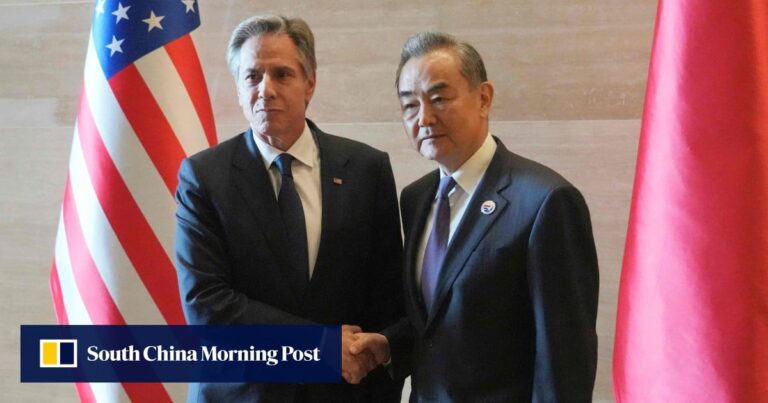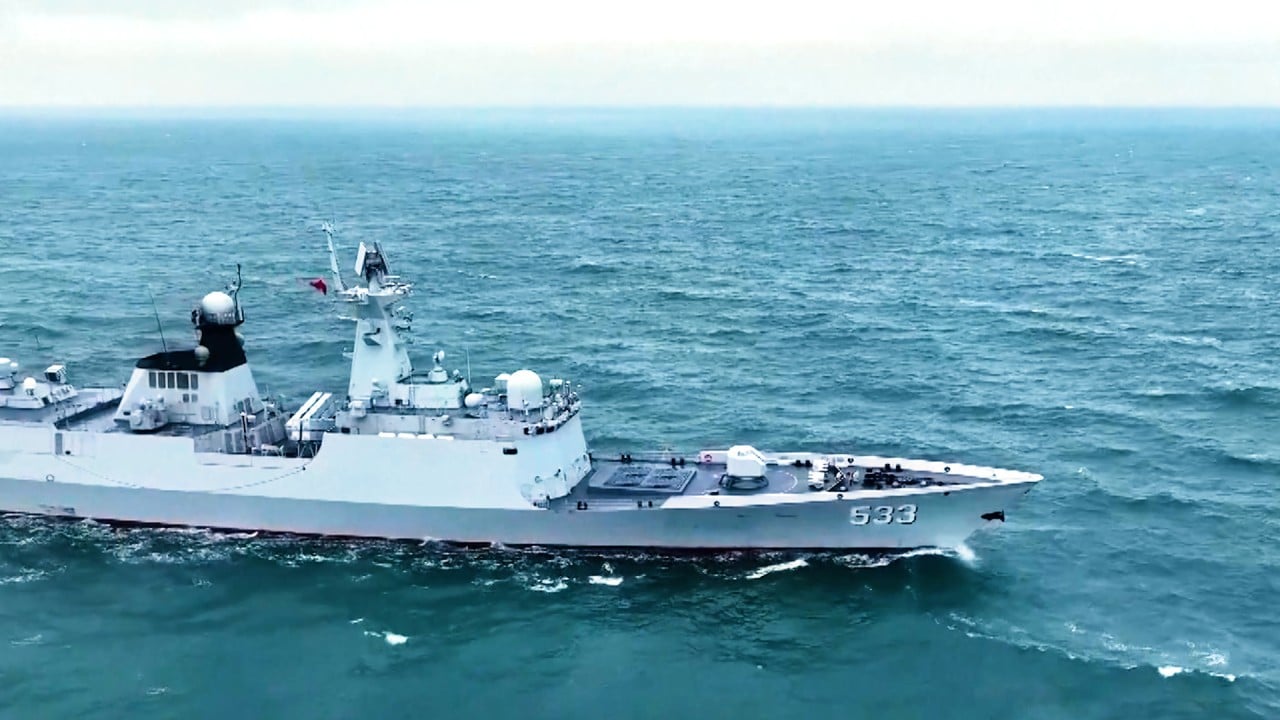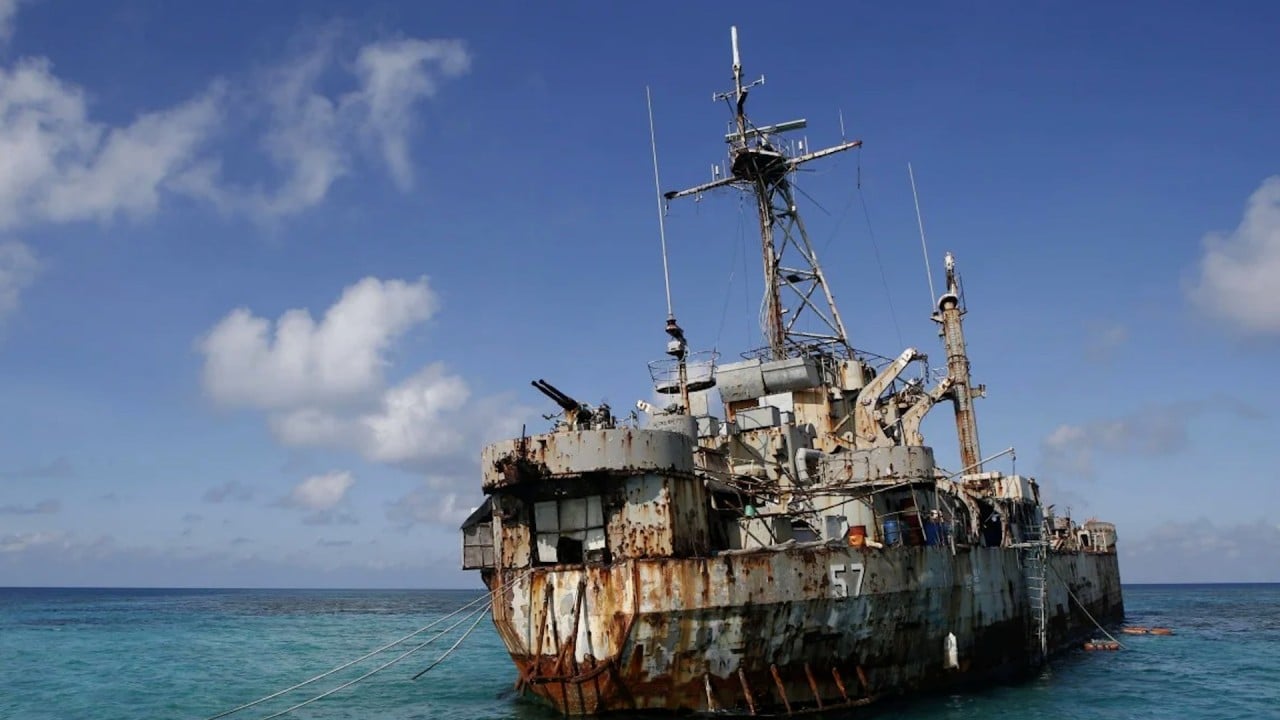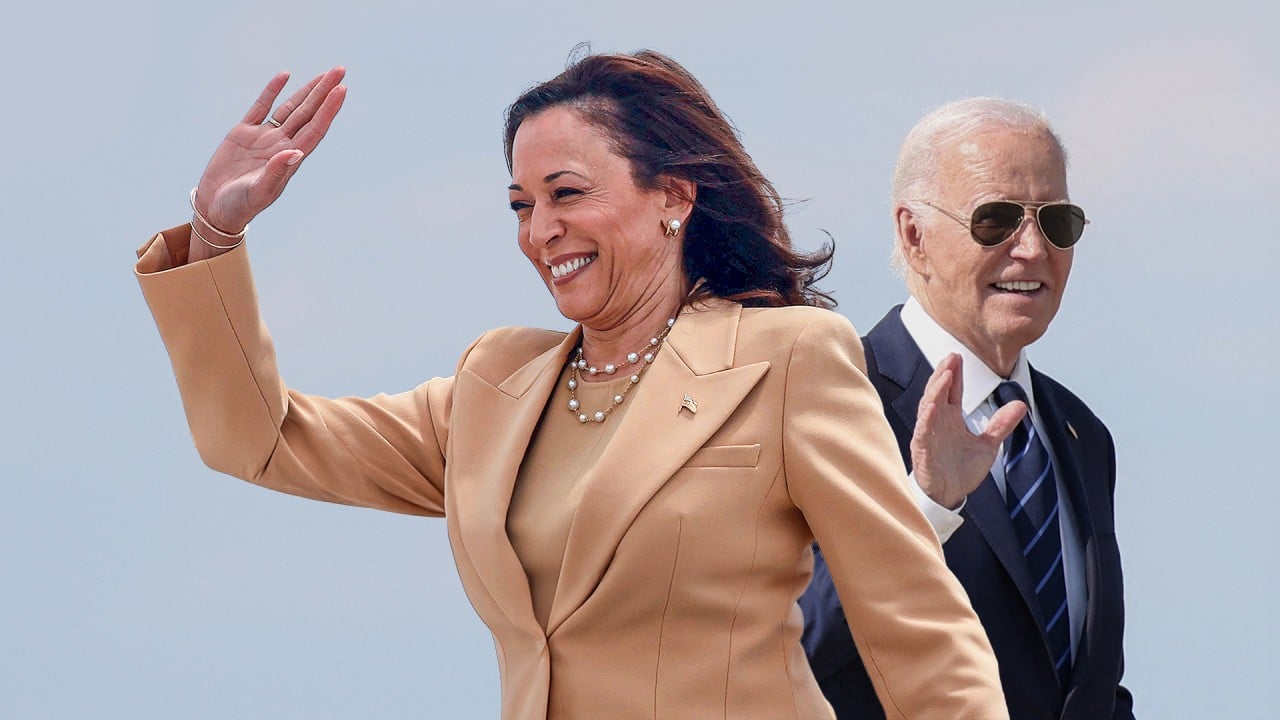“Risks to U.S.-China relations continue to accumulate and challenges are growing,” Wang told Secretary of State Blinken during the roughly hour-and-a-half-long meeting.
The two sides must continue to coordinate and manage risks, Wang added.
A senior State Department official told Western media that Secretary Blinken “expressed U.S. concerns about China’s recent provocative actions, including the mock blockade around the inauguration of Taiwan President William Lai Ching-te.”
“The two men held lengthy discussions about Taiwan,” the official said.
Beijing sees Taiwan as part of China and should be unified, by force if necessary. Most countries, including the United States, do not recognize Taiwan as an independent country. But Washington opposes any attempt to seize Taiwan’s autonomy by force and has pledged to supply it with weapons.
According to a Chinese statement, Foreign Minister Wang Yi told U.S. Secretary of State Antony Blinken that Beijing would take retaliatory measures against any provocative actions by “Taiwan independence” forces and would continue to squeeze any space for such demands.
Hours before the meeting, Blinken criticized Beijing’s “escalating unlawful actions” in the South China Sea, but also praised a recent agreement between China and the Philippines on a resupply mission to the disputed Second Thomas Shoal. The first Philippine resupply mission since the agreement took place today.
“I am pleased that today’s resupply of Second Thomas Shoal was a successful outcome of the agreement reached between the Philippines and China,” Blinken told ASEAN foreign ministers gathered in the Laotian capital, Vientiane.
“We applaud that and hope and expect that to continue in the future.”
Wang told Blinken that the Philippines should honor its promise to stop sending construction materials to the reef, where the Philippines deliberately grounded a World War II-era naval vessel in 1999 to assert its sovereignty.
According to a Chinese statement, Wang called on the United States to stop “adding fuel to the fire and stirring up trouble.”
Routine U.S. Navy “freedom of navigation” operations in the South China Sea are opposed by Beijing, and China was also angered by the deployment of U.S. Typhon intermediate-range missile systems in the northern Philippines in April.
A U.S. statement on the meeting said the two sides agreed to strengthen military-to-military communication to prevent miscalculation and clashes.
According to the statement, Blinken also reiterated U.S. deep concerns about China’s support for Russia’s defense industrial base.
Referring to U.S. sanctions imposed on hundreds of Russian and Chinese companies, Wang said the United States would continue to take “appropriate measures” if China did not address those concerns. In response, Wang criticized the sanctions and said China would defend its rights.
Blinken’s visit to Laos comes as regional allies become increasingly uncertain about U.S. foreign policy following President Joe Biden’s decision not to seek reelection, with Republican candidate and former President Donald Trump seen as likely to once again isolate the United States if he wins the November election.
According to Reuters, Blinken told Wang that both Biden and Democratic candidate Vice President Kamala Harris believe in the importance of a stable U.S.-China relationship and that the rules-based order must be upheld.
Zhu Feng, executive dean of the School of International Relations at Nanjing University, said the timing of Wang and Blinken’s meeting was “critical” because Biden’s withdrawal from the presidential race casts a shadow of uncertainty over U.S. policy toward China.
“Both China and the United States feel uncertainties in their bilateral relations, and this is a good opportunity for the diplomatic leaders of the two countries to sit down and discuss their concerns,” Zhu told The Post in an interview.
“Due to the dramatic changes in the US presidential election, Beijing is waiting to see whether Biden’s China policy will change following his withdrawal. Meanwhile, China hopes that VP Harris will refrain from speculating on China-related issues during the presidential election period.”
Joseph Gregory Mahoney, a professor of politics and international relations at East China Normal University, also said holding the meeting at this point was a “prudent” move.
“Given Trump’s position on the campaign trail and Biden’s withdrawal, the political situation in the White House is tense. There’s a chance that Harris will win, or that Blinken will stay on as secretary of state, but either way, change will come,” he said.
“It is not unusual for major powers to openly discuss these developments in order to reduce uncertainty and potential flashpoints during the transfer of power… We know there is great anxiety around the world about the elections, and we know that both sides may become nervous and unnecessarily reactionary.”
“So it may be wise to have an open discussion.”
Blinken’s visit to Laos marks his 18th visit to Asia since taking office. After the ASEAN meetings, he is set to continue visiting U.S. allies in the region, including Vietnam, Japan, the Philippines, Singapore and Mongolia.
Additional reporting by Reuters




